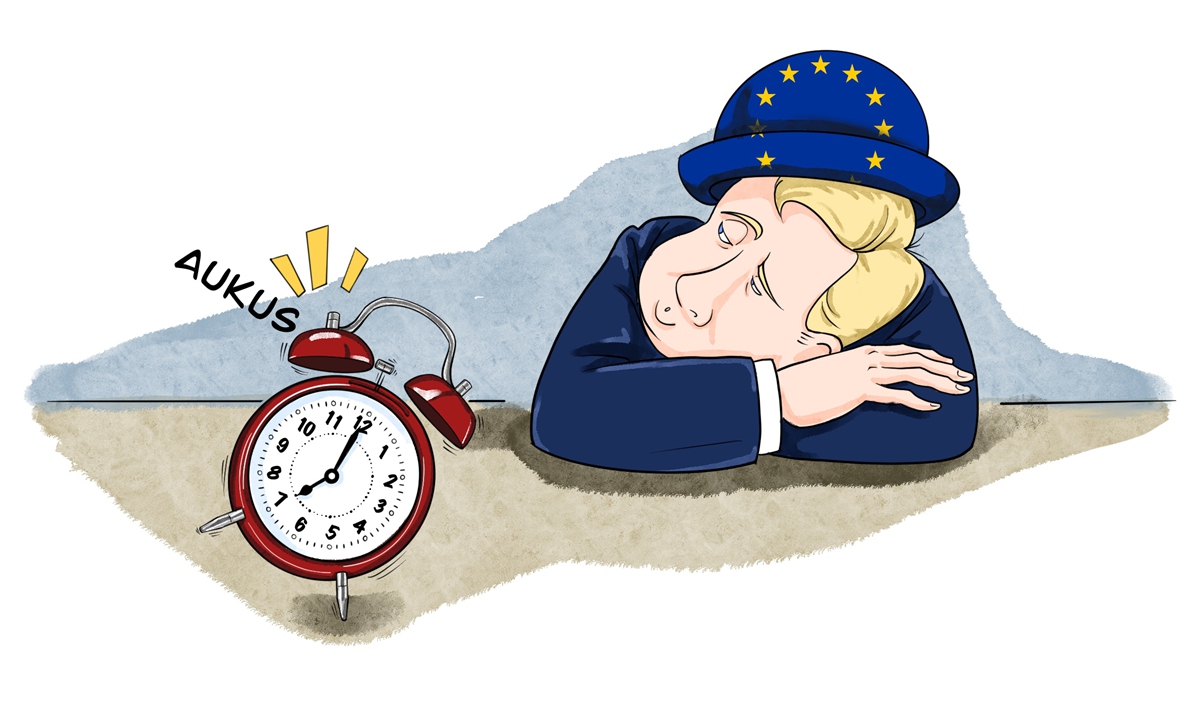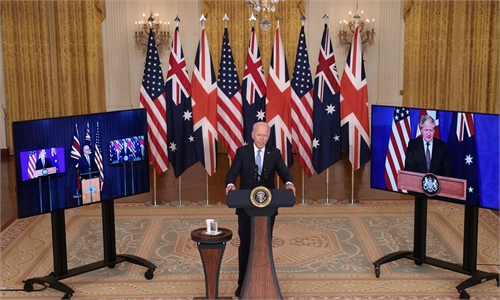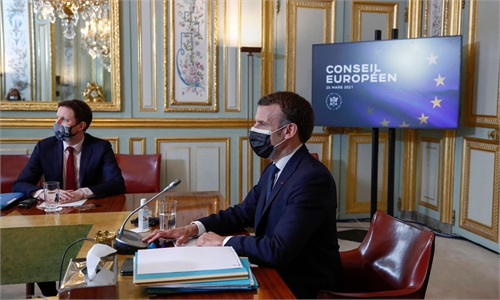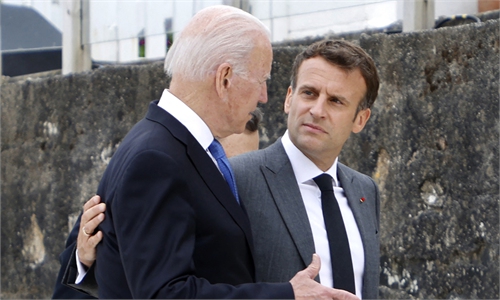COMMENTS / COLUMNISTS
AUKUS is the wake-up call the EU needs

Illustration: Tang Tengfei/GT
Following several days of belligerent claims and counterclaims between France and the US over what French officials called a stab in the back in the form of a new agreement among the US, the UK and Australia known as AUKUS, tensions between Paris and Washington appear to be simmering down. Following a phone call between French President Emmanuel Macron and US President Joe Biden on Wednesday, Paris will send its ambassador back to Washington next week and the two sides will launch "in-depth consultations," including a face-to-face meeting between Biden and Macron in October.
Such an outcome was widely expected because France, regardless of how angry it is at being forced out of a $66 billion submarine deal with Australia, has no political capital or leverage to fight back Washington to defend its massive economic and strategic interests. From the outset of the most significant diplomatic rift between Paris and Washington, it is expected that the two nations will eventually seek to make peace, most likely with Biden offering some empty gestures, and things will return to business "as usual."
But will things return to business as usual between the US and France? Clearly not. However, it should be noted no matter what empty promises Biden makes to Macron this time, Paris will still lose its $66 billion contract with Australia, which cuts much deeper than just economic losses but a humiliation for Macron and France and the collapse of a major strategy to ensure France' relevance in rapidly shifting global power structure.
This diplomatic fallout from the AUKUS should also serve as a much-needed wake-up call for the broader EU community. With AUKUS, Washington has shown its willingness to stab close allies in the back to achieve its strategic goals, which it arrogantly believes to be the common goal of its allies. This time, it was France who was double-crossed and lost what some described as the France's deal of the 21st century. Who is next on the chopping block? That's got be on the minds of many EU leaders.
The existential question EU leaders must also ask themselves is: We have followed the US' lead in defending our interests and values against Russia and China, but what if the threat is actually from the US? We can impose sanctions on Russia and China and stall massive business deals that took years to negotiate, but what can we do about potential damage to EU interests inflicted by the US and its Anglo-Saxon allies? Are we supposed to lie down and just take it? That's what British Prime Minister Boris Johnson wants France to do. On Wednesday, Johnson told Paris to "get a grip" and "give me a break." Adding insult to injury, he said those phrases in French.
The bottom line is that while China has a different political system to EU countries, it is not posing any threat to the bloc's interest. If the AUKUS fallout is any indication, the US probably poses the biggest threat to EU's interest over any other country. And if the EU continues on its current path of being held hostage to the US' apparent attempt to launch a new Cold War with China, it would basically abandon its own interests and any leverage it has over Washington. Needless to say, this is directly counter to the interests of the EU public. A new poll of EU member states showed that 85 percent of respondents want to avoid a Cold War between the US and China.
The EU has been talking for years about prioritizing strategic autonomy in its foreign policy and about European "strategic sovereignty" for many years without any concrete progress. After seeing what Biden's "America is back" proclamation entails, perhaps it's time for the EU to take some steps to exercise its autonomy and really put its own strategic interest above that of the US. The best way to start is to push forward the ratification process of the China-EU Comprehensive Agreement on Investment. That is not only in the EU's interests but would also send a clear message to Washington that the EU will protect its own strategic interests regardless of what Washington elites demand of them.
The author is a senior editor at the Global Times. bizopinion@globaltimes.com.cn




